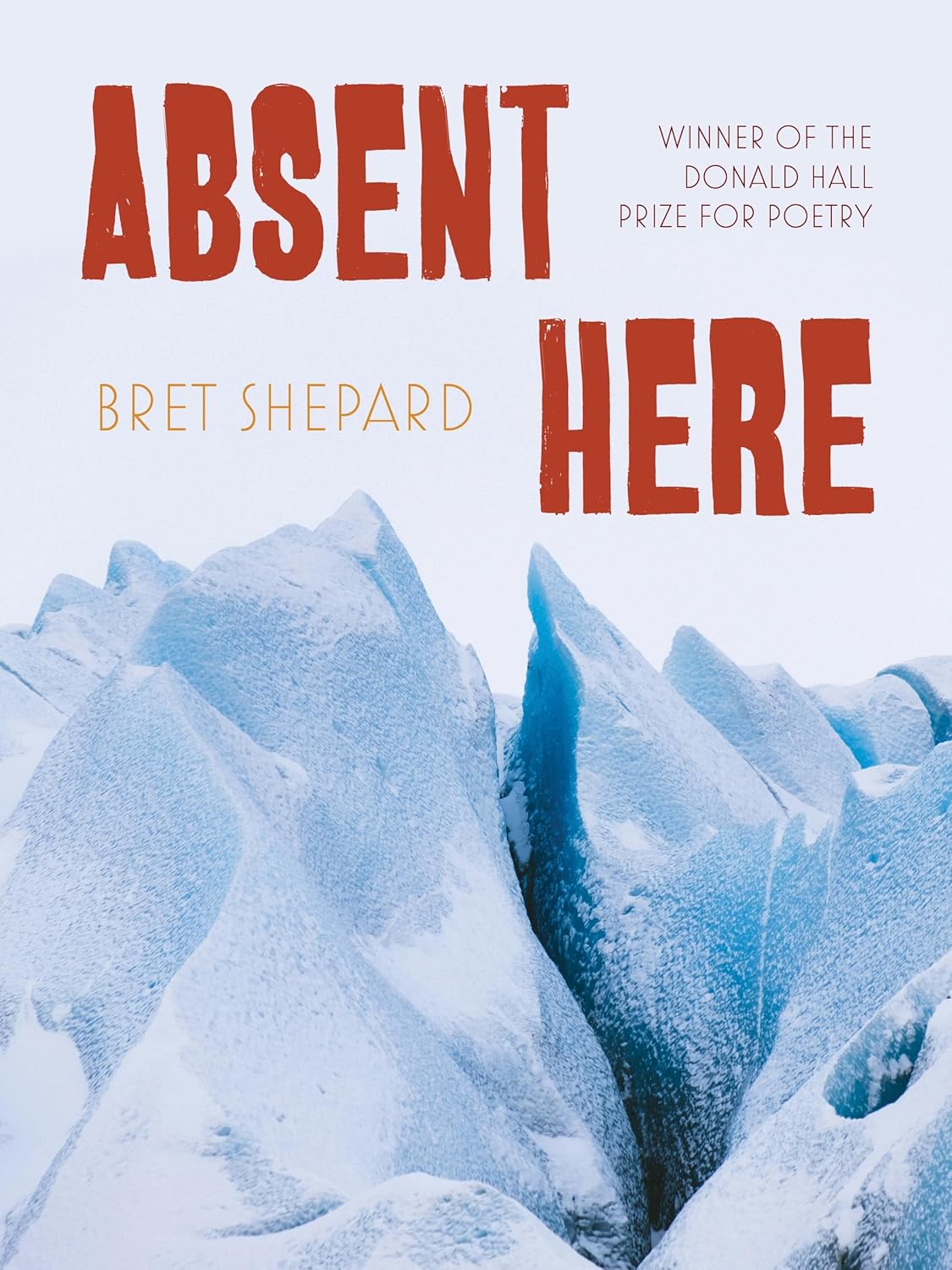Bret Shepard
University of Pittsburgh Press ($18)
Bret Shepard’s second collection, Absent Here, could be called a “project” book, in that all its poems are centered on one topic—in this case Alaska, which here seems less a state than a state of mind. Tundra, darkness, Arctic, body, language, absence: certain words that repeat in the text feel less written than lived (and indeed, as the author bio on the back cover tells us, “Bret Shepard is from the North Slope of Alaska”). Lines from the serial poem “Here but Elsewhere” are emblematic:
The absence is enormous in the Arctic.
. . . . . . . . . . . . . . . . . . . . . . . . . . . . . . . . . .
Some deaths create other ways to die.
Some losses you only understand once
your body and mind come back together
wherever it is beyond what we name.
Shepard’s approach in Absent Here is both reflexive and discursive. Early in the book, “On Ice” asserts:
Faces retain what the world gives back to us. We see it
in the mirror. Because it is already done, the mirror reflects
small ways we reduce. Like ice rolled over mistakes,
we grieve what we touch, the selves we try to change too late.
Toward the end of the collection, in “Summer Camp,” a bull caribou falls dead, and by being “taken apart” it is simultaneously “also reduced to more.” From any angle, there’s a sadness to Shepard’s Alaska, an overhang of the past’s erasure against the present’s inevitability; the speaker is often looking back at what once was and is no longer. “Territories,” which contains the epigraph “Report paints grim picture about Alaska Native language fluency, but hope remains,” begins with the decree “I’m missing a language for what is lost,” followed by the repetition “Tundra. Tundra. Tundra. Tundra” and the lines “In difficulty, a grammar for the vastness // measured in millions of eye lengths.” In this white and desolate landscape, the speaker considers the weight of poorly made past decisions (“The village voted itself dry / again. What is paradise // but a final tally of choices / given to innocence, sin // given to sunless days”), and what isn’t seen—absence piled upon absence—matters just as much as what is.
“Territories” is also notable for the line “I don’t have a language that isn’t white,” a reference to the region’s tumults of snow that also hints at a racial component to Shepard’s picture of Alaska. The observation is well-deserved—after Hawaii, Alaska has the highest percentage of Indigenous residents among U.S. states—and Shepard is wise to foreground the particular absence of non-whiteness his own whiteness dictates. Still, Absent Here is not a confessional text in any standard conception of the word; its poems are imaginative, far flung, and oftentimes non-linear, and even moments that seem to relate the author’s personal experience exhibit a stark refusal to accept a solid version (or vision) of selfhood. Take the opening section of the collection’s final poem, “Here but Elsewhere”:
Language doesn’t make decisions. It keeps
guessing. When I was given my Inupiaq
name, Jenny Felder talked me into sounds
from the book listing each possible version
nearby. I still hear her. I would speak them
now if my mouth could shape the words.
In his well-known review of Kenneth Lonergan’s Oscar-winning 2016 film Manchester By the Sea, critic A. O. Scott notes that it is “less concerned with nostalgia than with the psychology of loss.” Absent Here is squarely interested in the same thing. Although the book is filled with ideas and images of Alaska that a non-resident might also initially recognize (darkness, isolation, snow, etc.), Absent Here steadfastly troubles any fixed picture of Alaska—as a project, as a state, Alaska (like the self) remains ongoing amidst its vast and immediate absences.
Click below to purchase this book through Bookshop and support your local independent bookstore:
Rain Taxi Online Edition Spring 2025 | © Rain Taxi, Inc. 2025

